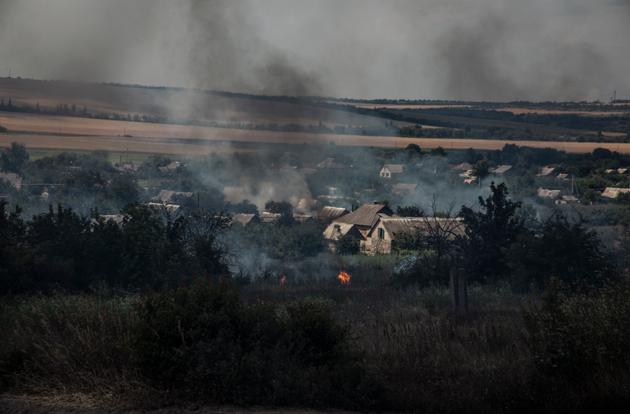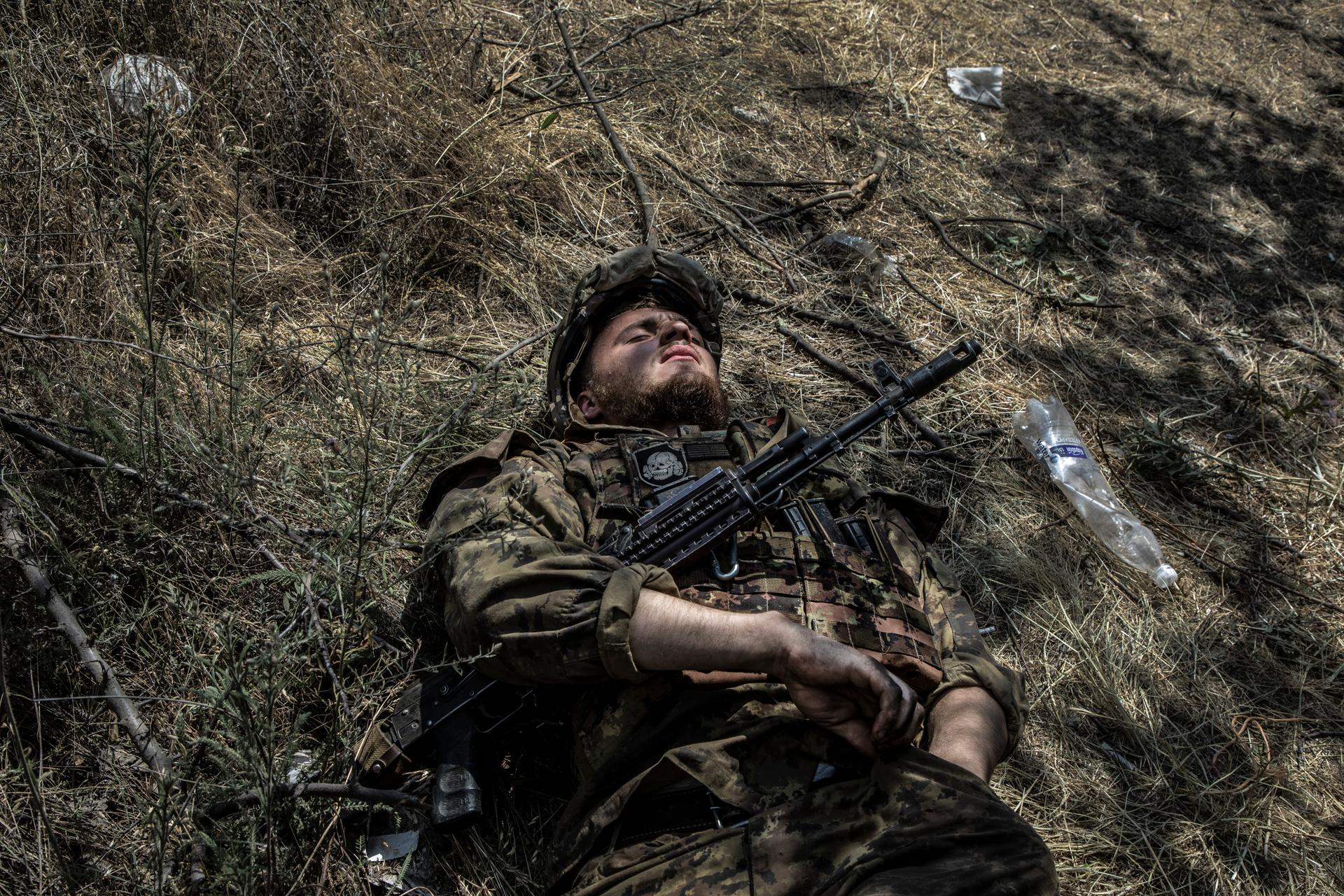A heavy sky loomed over Siversk. The city was almost deserted. Military cars and trucks raised clouds of dust as they go on their way. A few ghostly silhouettes huddled along walls and hung out on the side of roads. Here, an unperturbed cyclist pedaled next to a gutted house. There, a 55-year-old man, looking 30 years older, dragged a cart with two water cans. He wa returning from a well. This man with sunburned skin would not leave, he didn't know where to go.

Further in the city center, a few meters away from a smoky, torn-down house, Ivan (who did not wish to give his name) closed a gate on which graffiti read "People live here." He joined his friend Valeriy on the other side of the street. In April 2014, at the beginning of the war, when the Moscow-backed Ukrainian separatists had seized Siversk, Ivan had fled to Kharkiv before returning, four months later, in July, after the liberation of the city by the Ukrainian army. This time, the 32-year-old man, who stayed with his children, was determined not to leave, like "a quarter" of the 7,000 inhabitants that the city had before the war. "I'm at home, we live here, if the Russians come, I'll say 'hi' to them," he said with a laugh, waving his hand in the air. "What else can we do," asked Valeriy, 52, mentioning the lack of financial means to flee.
Three months without gas and electricity
The battle for Donetsk Oblast was intensifying, but the two men continued to go out. The inhabitants had become used to having to live part of the day in bomb shelters. A store opened from time to time. Sometimes volunteers came to drop off humanitarian aid. According to Ivan, they had not had gas or electricity for about three months.

Along a bend in the road, on the heights of the city of Donetsk Oblast, a few kilometers from the front line, dozens of soldiers waited under a small copse. They were men with exhausted faces. Some of them had a dull gaze, others were sleeping with their backs to the trees, lying on the ground. Assault rifles were resting upright against the tree trunks, alongside boxes of ammunition, bottles of water and shovels.
If they were exhausted, it was because these men were returning from the vicinity of Lysychansk, a neighboring city that fell to Russian forces on Sunday, July 3. This victory marked the loss of control of the Ukrainian authorities over the Luhansk Oblast. Since then, Russian forces had been concentrating their offensive on razing everything in the second region of the Donbas, the Donetsk Oblast. The cities of Siversk, Bakhmut and Slovyansk were now in the front line. On the evening of Tuesday, July 5, the governor of the region urged its more than 350,000 inhabitants to flee in order to save lives and allow the Ukrainian army to better defend the cities.
You have 66.3% of this article left to read. The rest is for subscribers only.
